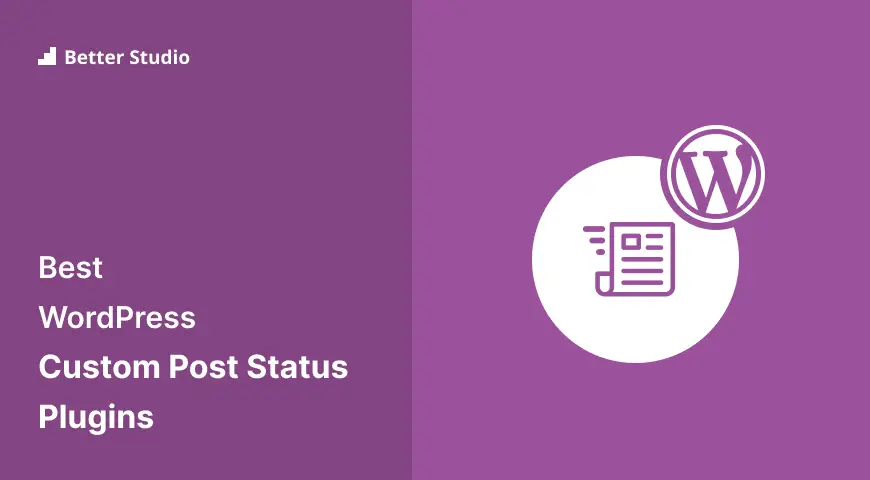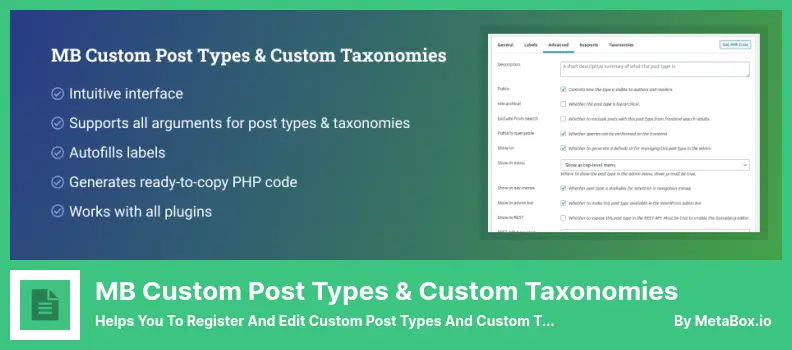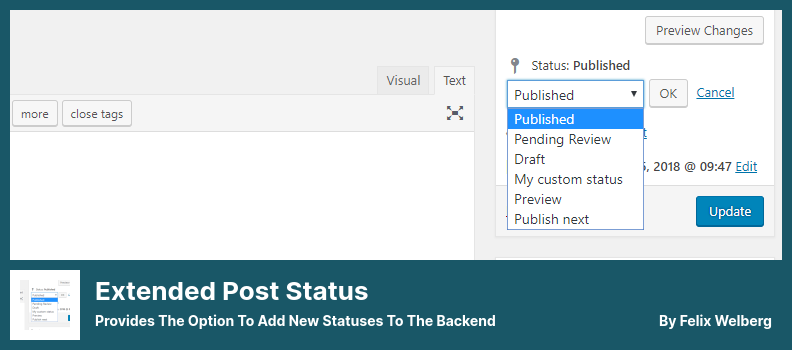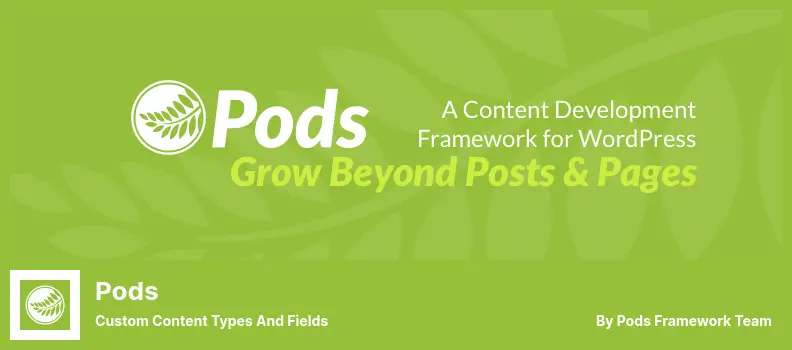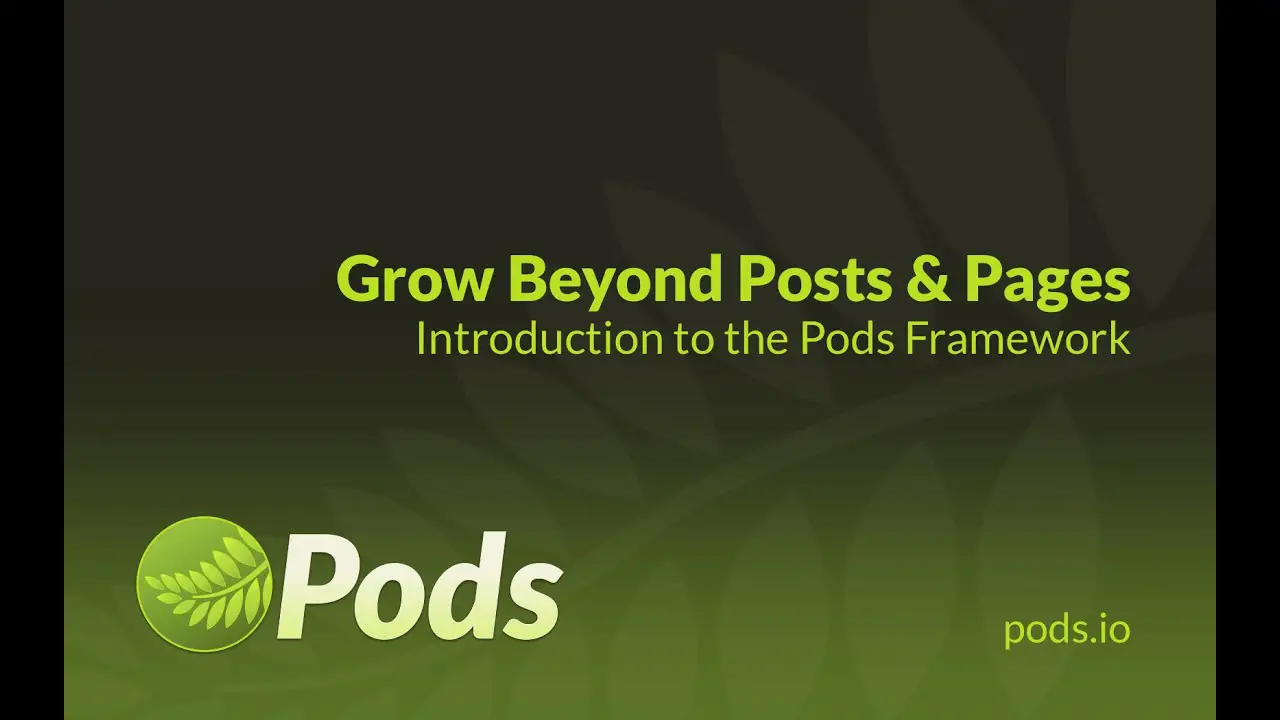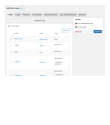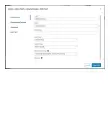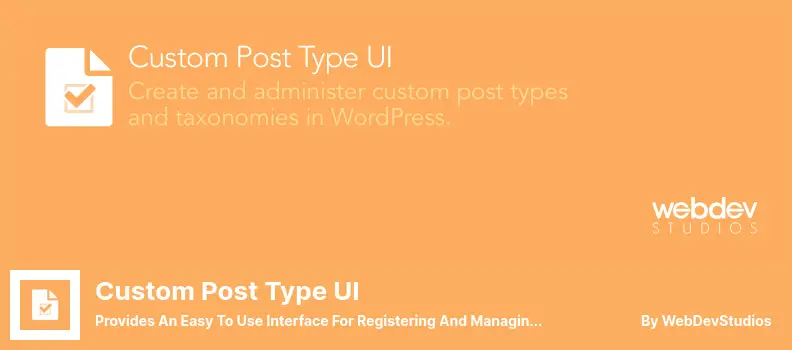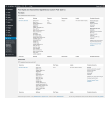Are you a WordPress website owner struggling to keep track of your custom post status? Look no further! In this blog post, we will discuss the 4 best custom post status WordPress plugins of 2023, both free and paid.
Did you know that over 34% of websites on the internet use WordPress? As a result, the competition to stand out with your WordPress website is higher than ever. That’s why it’s crucial to optimize the backend of your website, such as custom post status management.
Our article will provide you with the necessary tools to streamline your workflow and improve your website’s functionality.
In this article, we’ll explore the top 4 custom post status WordPress plugins of 2023 that can help you manage your custom post statuses like a pro. With detailed information and explanations of each plugin’s features, we promise you’ll find the perfect plugin for your website. So, without further ado, let’s dive into the world of custom post-status plugins!
Best Custom Post Status Plugins for WordPress
Custom post statuses are a great way to keep your content organized in WordPress. In this section, we’ll be exploring some of the best custom post status plugins available for both free and paid options. Be sure to check them out to find the perfect fit for your website!
MB Custom Post Types & Custom Taxonomies Plugin
Helps You to Register and Edit Custom Post Types and Custom Taxonomies
MB Custom Post Types & Custom Taxonomies is a versatile plugin that allows users to create custom post types and taxonomies in the WordPress platform. It also comes equipped with the powerful Meta Box plugin, which enables users to customize fields, organize and control information, and manage arguments for post types and taxonomies.
One of the standout features of this plugin is the ability to export code into PHP, making it easier for developers to make modifications and create their own customizations.
It also comes with support for all arguments related to custom taxonomies, making it a comprehensive solution for those looking to customize their WordPress website.
Another great feature is the ability to export and import registered custom post types, providing users with more flexibility in managing their content. With the Register Post Status feature, you can also easily create and manage custom post types, further increasing the versatility of this plugin.
Key Features:
- User-friendly interface and reliable performance
- Flexible and versatile, perfect for any website owner’s toolkit.
- Export code into PHP
- Support for custom taxonomies
- Export and import registered custom post types
- Register Post Status feature for creating and managing custom post types
Extended Post Status Plugin
Provides The Option to Add New Statuses to The Backend
Extended Post Status is a WordPress plugin that provides users with additional status options alongside those available in WordPress. Users can easily add their custom status names and as many as they wish. The plugin makes use of Gutenberg to display posts with new situations in a new sidebar section.
One unique attribute of Extended Post Status is its ability to publish post types, pages, photos, videos, and video galleries to any subdomain or main blog page across the whole network. Additionally, users can control translations, messages, and workflow within Gutenberg Editor.
The Extended Post Status plugin interface is similar to that of categories and tags. It allows editing, adding custom post status, or removing statuses and setting the system settings. Plus, users can add or revise positions in the same way as categories and tags.
Key Features:
- Multi-language support (English, German, Russian, Ukrainian)
- Quick updates available
- Best PHP version for 7.2 or higher
- Option to add new back-end statuses
- Ability to create new categories and tags
- Relevant system status settings can be set
Pods Plugin
Custom Content Types and Fields
Pods is a multifaceted plugin that allows you to create custom post types, custom taxonomies, and custom settings pages, all in one package. With features such as Extended Post Status and a post status change hook, you can easily extend and customize your website’s content and ensure it reflects your unique needs.
One of the plugin’s notable weaknesses is the difficulty in enabling all necessary parts included in Custom Content Types for WordPress. However, once you’ve navigated the system, the possibilities for using the It plugin are endless.
Pods enables you to use blocks, widgets, or templates to create custom fields for any content type, including custom taxonomies for added organization and navigation.
With relationship fields, you can easily arrange your content in a way that makes sense for your site’s users. What’s more, you can even define Advanced Content Types using their own database tables.
Key Features:
- Creates custom fields for any type of content
- Allows for coordination of design with automatic theme using blocks, widgets, or templates
- Allows addition of custom fields to custom taxonomies
- Provides relationship fields for straightforward navigation
- Defines Advanced Content Types using own database tables.
Custom Post Type UI Plugin
Provides an Easy to Use Interface for Registering and Managing Custom Post Types
Custom Post Type UI is a plugin that enables you to create custom posts, taxonomies, and categories with ease. It also allows you to export and import your posts on other websites.
Although it lacks instructions for fixing non-functioning post statuses and displaying registered post statuses, it’s easy to use for registered users to create and save posts on the front end. The privacy settings and custom post visibility are also available in the plugin.
Despite the absence of some default post types, you can create and edit your custom post types and related taxonomies with an intuitive and comprehensive interface.
Key Features:
- Edit many types of publications
- Intuitive and comprehensive interface
- Creates custom post types and taxonomies
- Possibility to use built-in taxonomies
Frequently Asked Questions
Custom post statuses allow users to create their own post statuses, in addition to the default statuses available in WordPress. This can be useful for organizing content or creating a workflow for publishing.
Custom post status plugins can be helpful for those who need to manage a large amount of content, or who have specific publishing workflows that require additional post statuses. They can also help with content organization and tracking.
Conclusion
In conclusion, we have highlighted the 4 best custom post status WordPress plugins for both free and paid options in 2023. These plugins offer various features that can help customize your posts status and improve the overall content management experience on your WordPress website.
For more related tutorials, be sure to check out the BetterStudio blog. We provide a wide range of articles and guides to help you optimize your WordPress website to its fullest potential.
Don’t forget to follow us on Facebook and Twitter to stay up-to-date with our latest tutorials and news. We strive to provide valuable content to our users and grow together as a community.
Thank you for taking the time to read our article. If you have any questions or problems regarding the plugins discussed, please feel free to leave a comment below. Our team is always happy to assist you.



